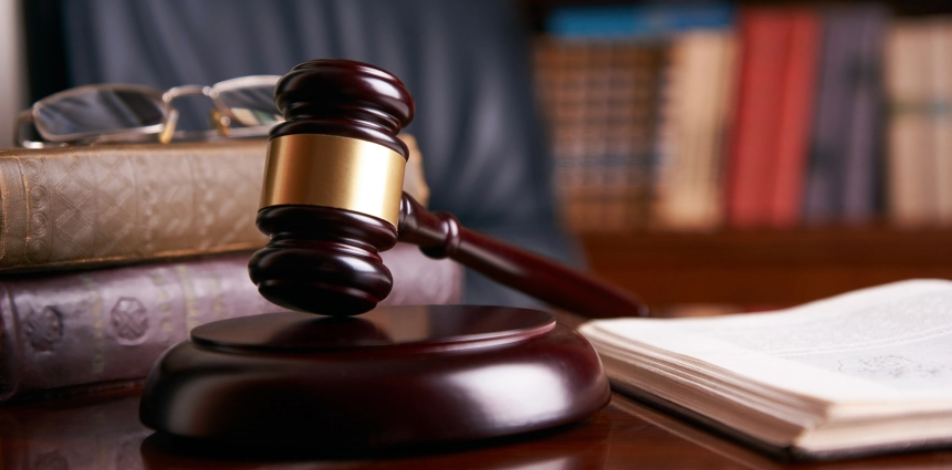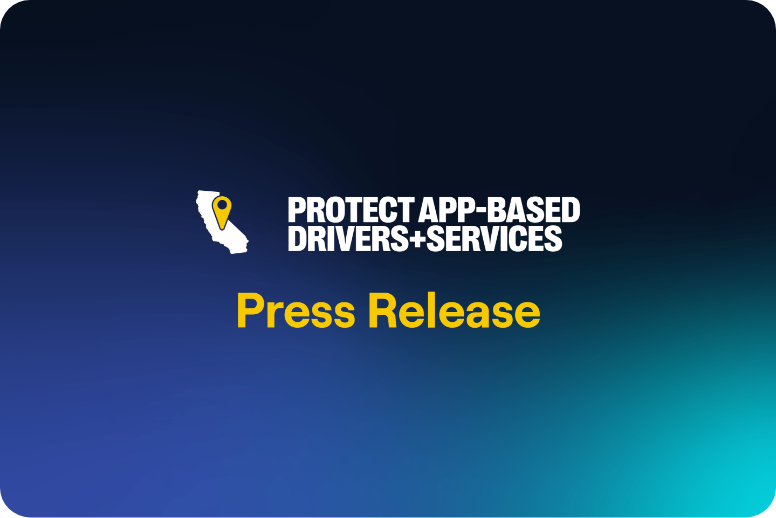By Bob Egelko
Proposition 22, the 2020 ballot initiative sponsored by Uber and Lyft that classifies their drivers as contractors rather than employees, is drawing support from unlikely sources as it awaits a verdict on its fate from the California Supreme Court.
In one recent filing, advocates for racial minorities, including the NAACP’s California chapter and local branches of the National Action Network founded by the Rev. Al Sharpton, said Prop. 22 provides “valuable income-earning opportunities for workers of color, and … valuable transportation, food, and delivery services to communities of color.”
In a filing that asked the court to uphold the measure, lawyers for the groups said that by defining the drivers as independent contractors, Prop. 22 “gives workers the freedom to choose when, where, and how to work.”
Another usual ally of liberal causes is David Carrillo, executive director of the California Constitution Center at UC Berkeley Law School. He told the justices that Prop. 22 was a critical test of Californians’ right to make their own laws.
“All political power resides in California’s people, and the initiative empowers the voters to override the Legislature on any public policy matter,” Carrillo and Stephen Duvernay, a researcher at the Constitution Center, said in their filing supporting Prop. 22.
The ballot measure was opposed by many members of the Democratic-controlled Legislature, which passed a law in 2019 to classify the drivers as employees. Prop. 22, if upheld, would override that law for app-based drivers.
Unions representing 2.3 million workers in California, joined by the Asian Law Caucus and the California Immigrant Policy Center, told the court that Prop. 22 maintains “a second-tier workforce comprised predominantly of workers of color.”
But the filings from an array of individuals and groups, more than 20 so far, serve as a reminder of the ballot measure’s appeal across the usual ideological lines and the uncertainty of the outcome in a court with six Democratic appointees among its seven justices.
Among the groups that endorsed Prop. 22 in 2020 was the California NAACP, whose elected president since 1999 has been Alice Huffman. Records obtained by CalMatters before the 2020 election showed that Huffman’s private political consulting firm had received $1.2 million from sponsors of ballot measures that she or the NAACP had endorsed, including $85,000 from Yes on 22.
Classifying drivers as independent contractors rather than employees means they are not entitled by law to minimum wages, overtime, meal and rest breaks, sick leave, workers’ compensation and other benefits, including repayment for work expenses such as auto fuel and repairs. In 2018, the state Supreme Court ruled unanimously that companies must prove workers are running their own businesses in order to treat them as contractors.
In 2019, the Legislature passed AB5, which classified the drivers as employees. But Uber, Lyft and food-delivery companies like DoorDash and Instacart then spent more than $200 million on Prop. 22, which exempted their 1.4 million California drivers from AB5 and defined them as contractors. The initiative was approved by 59% of the state’s voters in November 2020.
The legal battle began in Alameda County, where Superior Court Judge Frank Roesch ruled in 2021 that the measure violated a provision of the state Constitution that established workers’ compensation for ill and injured workers and authorized the Legislature to regulate it.
A state appeals court disagreed in March 2023, but the state Supreme Court set that ruling aside in June when it granted unions’ request to review the case. The court has not yet scheduled a hearing. The companies, meanwhile, have said they are continuing to treat their drivers as contractors while the case proceeds.
A central issue is whether Prop. 22, drafted as a statute rather than a constitutional amendment, conflicts with the California Constitution by overriding the Legislature’s authority to grant workers’ compensation benefits to the drivers. Carrillo, of the California Constitution Center, argued that the voters who authorized workers’ compensation have a right to change it.
The 1911 ballot measure that added workers’ compensation to the state Constitution “was intended only to clarify that the Legislature could do certain things, not to bar the electorate from taking action on the same subject” in a future ballot measure, Carrillo wrote in his court filing. He said it was “nonsensical” to assume that political progressives in California, who established the initiative system to give people a voice in lawmaking, would exempt workers’ compensation from future initiatives.
And on this issue, he contended, the 1911 measure was meant to counteract the U.S. Supreme Court’s notorious 1905 ruling in Lochner v. New York, which found that the state was violating the “freedom of contract” of bakers who worked in New York by limiting their work hours to 10 in a day, or 60 in a week.
The Supreme Court and lower courts relied on the Lochner decision for the next 30 years to overturn state minimum-wage laws and other workplace benefits. By placing workers’ compensation in the state Constitution, Carrillo argued, Californians were seeking only to ensure that federal courts could not use Lochner to abolish those benefits, and not to prevent voters from redefining eligibility in a future initiative.
That was disputed by officials in San Francisco, joined by the cities of Oakland and San Diego and by Santa Clara County.
“The California Constitution explicitly delegates authority over workers’ compensation to the Legislature,” Matthew Goldberg, chief labor protection attorney in San Francisco City Attorney David Chiu’s office, wrote in a court filing. Chiu was an Assembly member in 2019 and voted for AB5, the law from which Prop. 22 exempts app-based drivers.
“Proposition 22 impermissibly overrides that authority,” Goldberg argued, and it “strips a century’s worth of employment protections — covering compensation (e.g., minimum wages, overtime pay, and expense reimbursements), meal and rest periods, sick leave and health benefits, safety and health protections, anti-retaliation, unemployment insurance, disability insurance, paid family leave, and workers’ compensation — from an entire class of workers.”
And if Prop. 22 is upheld, lawyers for the California Labor Federation told the court, “nothing stands in the way of other corporate employers in California following the path that Uber, Lyft, and DoorDash have mapped out.”
Meanwhile, the Labor Department under President Joe Biden has declared regulations that could classify most or all of the drivers as employees rather than contractors under federal law, entitling them at least to federal minimum wages — $7.25 an hour, compared with $16 in California.
The regulations, based on such factors as how much control the hiring company has over the work, were announced in January and are being challenged in court by the U.S. Chamber of Commerce and an organization that includes Uber and Lyft.
Read the original article in full ↗
![]()
The Latest News

Opinion
I’m an Instacart driver: California Supreme Court must protect my job
By Stephanie Whitfield It may sound dramatic to say that app-based driving saved my life, [...] Read more
News
As Prop. 22 heads to California Supreme Court, support doesn’t break along ideological lines
By Bob Egelko Proposition 22, the 2020 ballot initiative sponsored by Uber and Lyft that [...] Read more